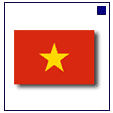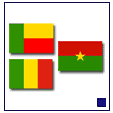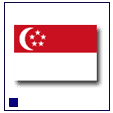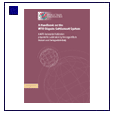|
|
|
|
n
|
Dr. Supachai: Ministerial support must be translated into Geneva progress
Director-General Supachai Panitchpakdi, in his
opening remarks
to the Trade Negotiations Committee meeting on 30 June, said that the
many Ministers he had met since the last meeting have given strong
political commitment to the success of the negotiations. “The onus is
now fairly and squarely on negotiators in Geneva to do the deals that
our political leaders clearly want us to achieve,” he said. |
|
n
|
Members praise Viet Nam’s new offers, but seek improvements and more clarification
The 63 WTO members negotiating a membership package with Viet Nam
praised the Southeast Asian country on 15 June for considerably
improving its market access offers for goods and services, and its
programme for applying WTO agreements. |
|
n
|
Members encourage Benin, Burkina Faso and Mali to move ahead with reforms
WTO members, at the conclusion of the trade policy reviews of Benin,
Burkina Faso and Mali on 30 June 2004, emphasized trade as a tool for
development and encouraged the three African countries to pursue the
implementation of their reform programmes. |
|
|
Singapore commended as “exemplary” member
WTO members, in concluding their trade policy review of Singapore on
16 June 2004, said the openness of its economy has helped it weather
recent economic shocks. They commended Singapore's continuing reforms
aimed at promoting an economy that is “globalized, entrepreneurial and
diversified”.
|
|
n
|
DISPUTE SETTLEMENT back to top DSB considers panel requests by the United States and Canada
The DSB, on 22 June, considered for the first time two requests for
panels: by the United States to examine Mexican tax measures on soft
drinks and other beverages, and by Canada on US injury determination
concerning hard red spring wheat from Canada. The two requests were
blocked by the respondents. |
|
n |
Ten Years After Marrakesh: the WTO and Developing Countries
Dr. Supachai Panitchpakdi, in a
speech to a conference
hosted by the Moroccan authorities to mark the 10th anniversary of the
signing of Marrakesh Agreement establishing the WTO said “we should be
immensely proud of the achievements of the last decade. The trading
system has shown its resilience in the face of financial turbulence
and it has contained and resolved over 300 trade disputes between its
Members, providing for greater stability and predictability in global
commercial exchanges”. Technical assistance for acceding LDCs discussed
At the meeting of the Sub-Committee on Least-Developed Countries (LDCs) on 7 June, members welcomed a Secretariat note “Technical Assistance for Acceding LDCs”, which provided an overview of the type of technical assistance required to assist LDCs in their accession process as well as the type of assistance offered by the WTO and by other organizations. The need to continue providing assistance to newly acceded LDCs was underscored.
On market access for LDCs, Australia informed the meeting that they would shortly circulate responses to questions raised at the previous Sub-Committee meeting where the notification by Australia was discussed. Canada informed Members that it had extended its General Preferential Tariff and Least-Developed Country Tariff for a further ten years and that the list of beneficiaries had been changed.
On trade-related technical assistance, discussions were based on the note prepared by the Secretariat on “Assistance to Address Supply-Side Constraints”. The document notes that whilst the issue of supply-side constraints goes beyond the mandate of the WTO, the WTO has tried to respond through co-operation arrangements with other institutions including through initiatives such as JITAP and the Integrated Framework. Members welcomed the note as a good basis for further discussions on supply-side constraints. Representatives of UNIDO, the World Bank and ITC briefed Members on how their organisations were addressing supply-side constraints.
Fifth introduction course on WTO for LDCs concludes in Geneva
The Fifth introduction course on WTO for the least-developed
countries, organized by the Institute for Training and Technical
Co-operation of the WTO, concluded on 11 June in Geneva.
WTO launches first Asia-Pacific trade course in Hong Kong, China
The WTO, in partnership with the University of Hong Kong, officially
launched its first Regional Trade Policy Course for Asia-Pacific on 9
June in Hong Kong, China. |
|
n
|
Among the meetings held in June were the following:
|
|
n
|
WTO Secretariat publishes its first dispute-settlement guide
The WTO Secretariat, on 29 June, published A Handbook on the WTO Dispute Settlement System. “The primary purpose of this training guide is to explain the WTO dispute settlement system to an interested person with little or no knowledge of how this system functions,” according to WTO Legal Affairs Director, Mr. Bruce Wilson, in his preface. Report detects shifts in services and agricultural trade patterns
International trade patterns have changed in two significant areas over
the past two decades with growth in services trade no longer clearly
outstripping growth in goods, while agricultural trade has shifted away
from commodities towards processed products, according Recent Trends in
International Trade Policy Developments released on 11 June. The WTO
Secretariat report challenges a “general perception that world commercial
services trade is growing faster than trade in goods. Indeed trade in
commercial services expanded faster than goods trade in the second half of
the 1980s, but thereafter the record is mixed,” it says. Broadly, services
and merchandise trade growth have evolved in a roughly similar way since
1990. For 1990–2003, trade in commercial services and goods both grew by
about 6% per year on average, and therefore services’ share of
international trade remained at about 20% over the period. “Overall, there
is no indication that services categories in general have increased their
share in international trade,” the report says. |







